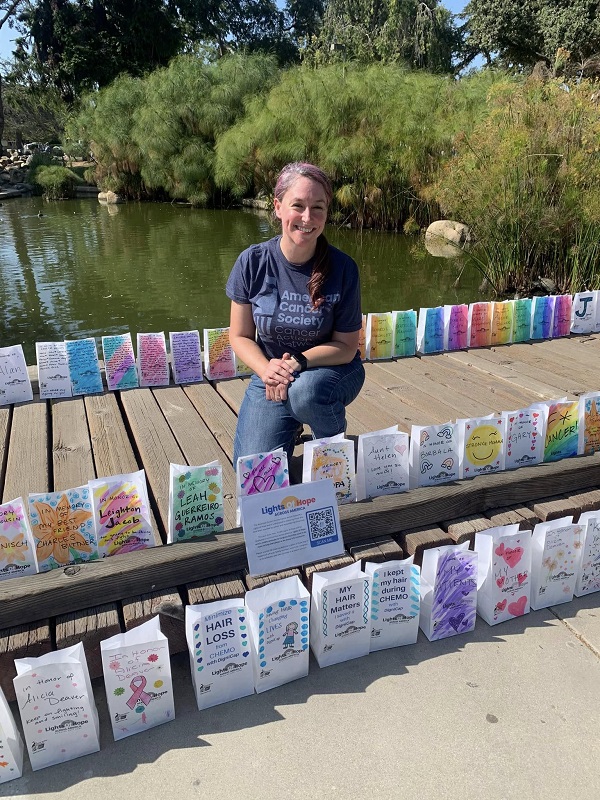More than 25,000 people walked 10 kilometers through West Hollywood and the Fairfax district today in the 30th annual AIDS
Walk Los Angeles, raising $2.26 million for AIDS Project Los Angeles and more than 20 other Los Angeles County-based AIDS service organizations, according to organizers.
“The awe-inspiring community of AIDS Walk Los Angeles participants has once again proven its ceaseless dedication to helping people living with HIV and AIDS,” said Craig R. Miller, the walk’s founder and senior organizer.
AIDS Walk Los Angeles was the world’s first fundraising walk to benefit organizations dealing with AIDS. Since its inception in 1985, the walk has raised more than $79 million, according to Ben Fordham, the walk’s director of communications.
Los Angeles Mayor Eric Garcetti called walkers gathered in West Hollywood Park before the start of the walk “a sea of angels in the City of Angels.”
“We come back here single year because we love,” Garcetti said. “We come back here because we believe. We believe in a moment in which AIDS and HIV is no longer part of our vocabulary.”
“We believe in those who have come before us, those that we have lost. I come here every year for my cousin Jimmy Hester, a proud out Latino who was one of the first taken in the AIDS crisis. I come here because of the friends who are living, celebrating and who are walking today because life and love surrounds us in this City of Angels.”
Garcetti singled out a group of HIV-positive Latino walkers representing AIDS Project Los Angeles’ Fuerza Positiva, which focuses on serving HIV positive men who have sex with men and Latina women of Mexican origin, for saying “we will make sure in our community that we are reaching out and making sure that this uptick (in diagnosed cases) goes right back down.”’
Miller told City News Service the Affordable Care Act has allowed the AIDS Project Los Angeles to enroll “many, many of its clients” in health insurance for the first time.
“We have the opportunity to get our HIV prevention clients — mostly HIV-negative gay men who’ve never had access to health care before — get them in health care, provide them with medical screenings, HIV testing, STD screening and treatment, HIV prevention interventions,” said Miller, using the abbreviation for sexually transmitted disease.
“We really have an opportunity to change the curve of the epidemic. African-Americans are disproportionally impacted by the epidemic. The No. 1 reason why is they don’t have access to consistent health care. Now we can get them that access.”





















